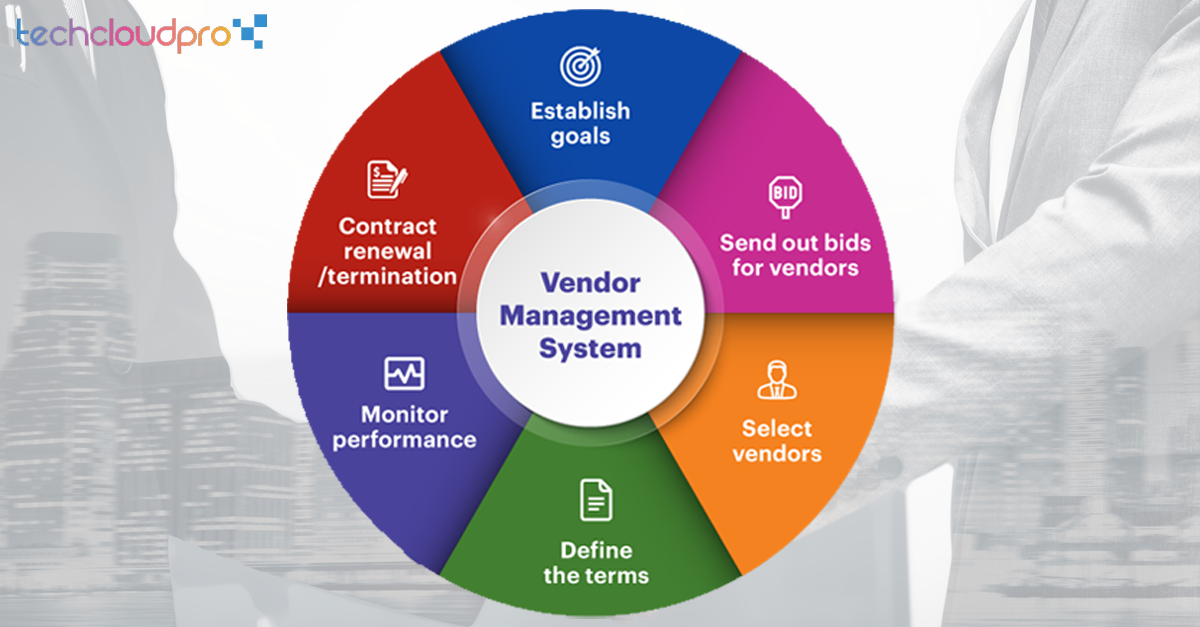A Guide to Vendor Management System for Business
Posted On November Friday 25, 2022

Before we start explaining about the role and benefits of having a Vendor Portal Management System for your business, let’s look into common glossary of the system.
What is Vendor Management System?
A Vendor Management System (VMS) is a suite of multiple applications that help small, mid-size and enterprise businesses to take care of the end-to-end vendor management processes. Vendor Management System takes care from the initial contract signing to final closure of the deal, while establishing a business relationship with vendors.
Who can be benefited from the Vendor Management System?
A Vendor Management System is helpful for any size of the business, be it small start-up or mid-size or large enterprise business. Any business who are handling vendors and the process of procurement, invoices, orders, purchase orders etc., are manual and looking for an automated solution for the same can make use of Vendor Management System
What are the processes involved in Vendor Management System?
Partner Portal / Vendor Management System are mainly segregated into six distinct stages that helps organize and solidify a buyer’s relationship with suppliers.
- Defining the Business Goals
- Finding the right vendor
- Risk assessment
- Negotiation over the contract
- Supplier Onboarding
- Risk mitigation and monitoring
Why Vendor Management System is Important for Business?
Measuring the success of a Vendor Management System is essential for any business irrespective of its size to look competitive in the modern marketplace. We know the importance of key vendors who provide raw materials, essential services, and other resources for the business which plays a pivotal role in production and profitability. In that case, it’s crucial to have a good VMS in place to manage the multiple vendor operations for the business.
Implementation of Vendor Management System for a business need a focused mission to achieve the business goals, which are mentioned below;
Process Automation
With the help of Artificial Intelligence coupled with automation processes, it can improve the management of vendor for better visibility towards the business functions. Multiple workflows in a business needs automation such as on-boarding of suppliers, invoicing, and the procure-to-pay (P2P) process, which is a daunting task if done manually and chances of human errors is more.
Automation will not only take out the human factor out of the equation, but it will also remove the need of manual cross-checking for data entry errors, leading to timely approval process with more productivity. Even automating the on-boarding process for suppliers will ensure that you have list of complete vendor data and profile for every supplier.
AI tools like Zietra helps automate the VMS and increase productivity for businesses.
Compliance Management
Even small businesses supply chain process need to follow right set of rules and regulations to manage and do the business in any country. Multiple compliance regulation needs to be enforced – both internal and external. External compliance’s (Local, Regional and International Government law and compliance’s), industries and internal stakeholder needs to meet their compliance demands. Implementation of a Vendor Management System will reduce the risk of business and improve the regulatory compliance’s by;
- Centralized vendor data across all the platforms will improve the performance and support fast and accurate audits trials.
- VMS supports reminder workflows for automated notification on license expiration, subscription renewal etc.
- No manually generated fake invoices will be entertained, leading to better visibility over the transactional data.
Lower life-cycle of process
Starting from purchasing to invoicing data in VMS, each process has its own timeline. Automation in the Vendor Management System will reduce the life-cycle of this process automatically, leading to better productivity and more effective data. Each process in your supply chain can be streamlined from hiring temporary staffs to ordering raw materials for production, will ultimately boost your profitability, productivity, and competitive advantage.
Analytics and Reporting
When all data are stored in a single cloud-based server, different stakeholders will make use of data as per their needs. Vendor Management System brings a clear forecasting of budget, risk and opportunities, future contract management opportunities, KPI’s effective, inefficacies in the business function to identify new market, new opportunities, and other potential projects.
Which industries can be benefited from a Vendor Management System?
Industries who are focused on the process of staffing, supply chain, distribution, good management, etc., can make use of Vendor Management System.
Here’s is the list of industries who can take advantage of the Vendor Portal for managing the purchase, invoicing, staff onboarding etc., are as follows:
- Distribution, Trade and Retail Industry
- Pharmaceuticals
- Manufacturing
- E-Commerce
- Franchisee Operations
- Education sector
- Aviation
- Energy
- Financial Services
- Outsourcing Services
What are the challenges involved in Vendor Management System?
Vendor Management System plays a crucial role in dealing with vendors and selection of the right one for your business needs is not an easy task. So, here is the list of challenges involved in Vendor Management System;
- Brand reputation is at Risk – Managing multiple vendors on a single portal is not an easy task. At the same time, assessing the quality of each vendor and filtering out into different bucket is tedious job. One wrong vendor selection will bring your brand value at stakes. That’s why it is crucial to have a background check before onboarding of any vendor.
- Data storage – When you are handling multiple projects in hand from multiple vendors, it is crucial to have a secured data storage management application. Having a VMS portal like PartnerPortal helps to keep your data secured, making it easy to access and retrieve all the information’s needed.
- Improved Visibility – As mentioned above, having a single data storage solution is necessity, which will help you manage the data of multiple vendors and benefit for your organization, providing you with improved visibility.
- Payment Risk – Many vendors will follow the industry-standard compliant payment terms and condition before onboarding to the system, whereas some may come up with their own terms and condition. It’s important to figure out their specific payment terms and ensure that the payment is always on time.
Overall, with true collaboration between Vendors and Suppliers and the implementation of the right VMS, the business can maximize the value of all engagements.

